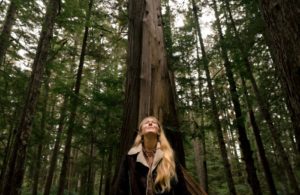With my final Unsettled and Striving column I want to lay out a few ground rules I’ve learned about being a European settler striving toward allyship.
1. Indigenous voices are to be heard first
Although you may feel passionately about an Indigenous-led project and be in complete disagreement with the opposing colonial side of things, shut up and listen. The baseline for so many movements right now is for Indigenous nations to be (finally) heard and respected on their own territory. Be in support by creating space for First Nations peoples to speak up and share their stories, which for too long have been silenced.
2. Take instruction and guidance from Indigenous leaders
Any movement that you join will have Indigenous leaders in the driver’s seats and it’s important to take instruction and direction from them seamlessly. Do not try to redirect or contradict their decisions. Even if you are a leader or a boss in your own community, when you’re standing with an Indigenous-led movement, you are not a dictator.

3. Know your land
If you are anywhere on so-called “North America,” you are on stolen land. This is a central point to always keep in mind. Learning the accurate history of your place of residence, along with the names of Indigenous nations that were there first, is a crucial piece of the educational puzzle. Learn the traditional names for the lands you live and work on (they are always derived from better stories than the colonial names anyway).
4. Learn your lineage
If your ancestry stems from anywhere other than where you currently are, you’re a guest on those territories. Understanding how your family line wound up on those lands is interesting and it empowers decolonization by giving strength to the accurate truth of how you came to be here. Being “Canadian” or “American” is never all there is to know. These titles are not your heritage. You can begin by researching the birthplaces of your grandmothers, great-grandmothers, and continue up the matrilineal line. Basically, if you’re a white settler, dig until you understand your European roots.
5. Support Indigenous businesses and artists
Money is a powerful currency, and fueling Indigenous entrepreneurs is a helpful and supportive step for the ally who isn’t able to show up on the frontlines. Buying products and art from Indigenous peoples is also a great way to learn about the piece you are buying. There is always a story, and it will deepen your connection to the product to hear where it has been derived from.
6. Start where you’re at
If you’ve always lived in a sheltered corner of society where colonization was never questioned, and showing up at a blockade with banners blazing feels horrifying and intimidating right now, start where you’re at. Go online and learn the traditional names for your town. Go on Instagram and find an Indigenous artist to support and buy from. Ask a friend or coworker where their lineage originates. Research the many Indigenous-led movements happening right now, and then tell someone about them. Form an opinion around the struggles Indigenous communities are facing every day. Educate yourself about the history of this “country,” and then reassess whether you’re still proud to be “Canadian.” However small that first step is, start where you’re at. It will begin a ripple effect, and we need more waves being made.
Thank you so much to everyone who’s followed along with these columns over the last seven months. Every read has been hugely appreciated. Please leave a comment or reach out if you feel called to. It’s been a pleasure.
